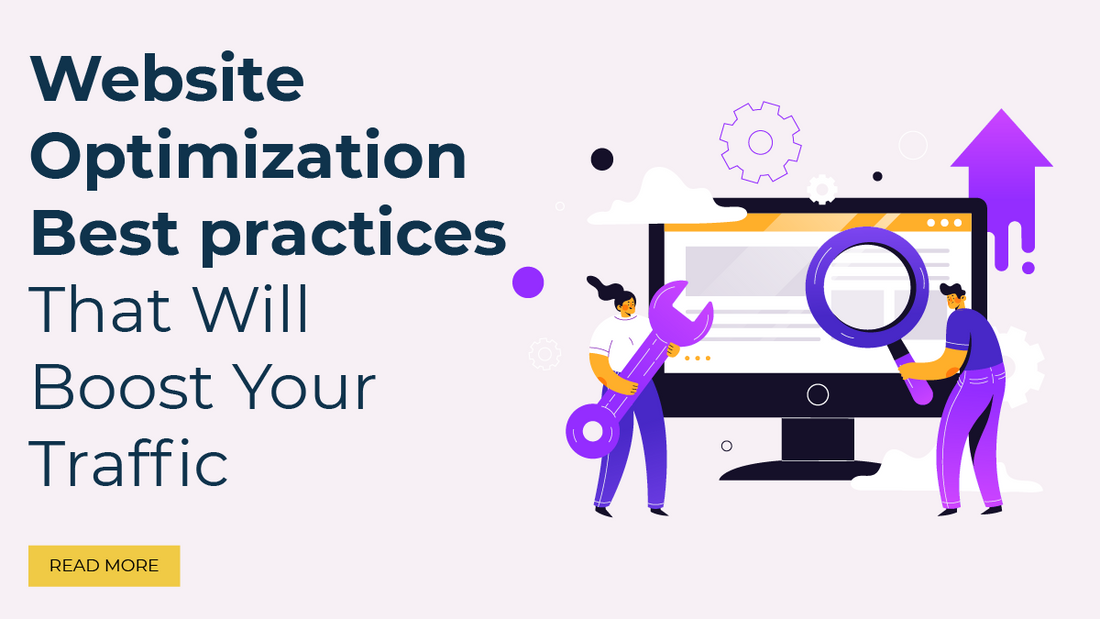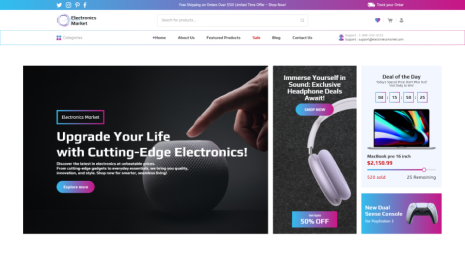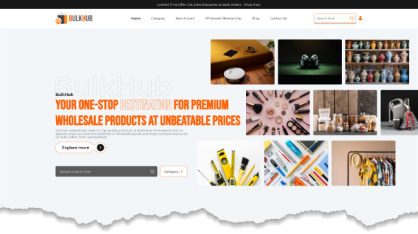
Introduction
In the vast and ever-evolving landscape of the internet, having a well-optimized website is essential to standing out from the crowd. Website optimization Tips can significantly impact your online visibility, user experience, and, ultimately, your traffic. In this comprehensive guide, we'll delve into the world of website optimization and explore the top strategies that can help boost your website's traffic.
What is website optimization?
Website optimization is the process of making improvements to your website to enhance its performance, user experience, and visibility on search engines. It's a multifaceted approach that involves various elements, from on-page and off-page SEO to technical optimizations and user experience enhancements. Effective website optimization aims to create a seamless, user-friendly, and high-performing web presence that attracts and engages your target audience.
The Significance of Website Optimization Best Practices
Website optimization best practices are essential for several reasons:
- Improved Search Engine Ranking: Search engines like Google reward well-optimized websites with higher search engine rankings. This leads to increased visibility and organic traffic.
- Enhanced User Experience: A well-optimized website provides a seamless and enjoyable user experience, leading to longer on-site visits and lower bounce rates.
- Faster Loading Times: Faster-loading websites are favored by search engines and users alike. Optimizing your site's speed can have a direct impact on your traffic.
- Mobile Friendliness: With the growing use of mobile devices, having a mobile-responsive website is crucial. Optimizing for mobile can attract a broader audience.
- Increased Conversions: A well-optimized website can lead to higher conversion rates, turning more visitors into customers or subscribers.
15 website optimization best practices
Now, let's delve into 15 website optimization tips that will help boost your traffic:
1. Keyword Research and Optimization

Effective keyword research is the foundation of a well-optimized website. Identify relevant keywords and phrases that your target audience is likely to search for, and strategically incorporate them into your content, titles, and meta descriptions. Website optimization best practices tip: Use keyword research tools like Google Keyword Planner, SEMrush, or Ahrefs to find valuable keywords for your niche.
2. High-Quality Content
Content is king in the digital realm. Create valuable, informative, and engaging content that resonates with your audience. Regularly update your content to stay current and competitive. Website optimization tip: Maintain a content calendar to ensure consistency in posting fresh content.
3. Optimize Meta Tags

Meta tags, including title tags and meta descriptions, are critical for search engine optimization. Craft compelling and keyword-rich meta tags that entice users to click on your website in search results. Website optimization tip: Keep your meta descriptions concise and relevant to improve click-through rates.
4. Mobile Optimization
With mobile usage on the rise, having a mobile-responsive website is crucial. Ensure that your site is visually appealing and functional on various mobile devices. Website optimization tip: Use Google's Mobile-Friendly Test to evaluate your site's mobile compatibility.
5. Improve Page Loading Speed

A slow-loading website can deter users and harm your search engine rankings. Optimize images, leverage browser caching, and use Content Delivery Networks (CDNs) to boost loading speed. Website optimization tip: Use tools like Google Page Speed Insights or GTmetrix to identify speed bottlenecks.
6. Create High-Quality Backlinks
Backlinks from reputable websites can significantly boost your site's authority and search engine rankings. Focus on building high-quality, relevant backlinks through guest posting, outreach, and content marketing. Website optimization best practices tip: Monitor your backlink profile using tools like Moz or Ahrefs to ensure link quality.
7. Use Descriptive URLs
Optimize your URLs by making them descriptive, concise, and keyword-rich. This not only aids in SEO but also makes it easier for users to understand the content of a page. Website optimization best practices tip: Use hyphens to separate words in URLs for readability.
8. Secure Your Website with HTTPS
Security is a priority for both search engines and users. Implement HTTPS to encrypt data transfers and establish trust with your audience. Website optimization best practices tip: Obtain an SSL certificate from a trusted provider to enable HTTPS.
9. Optimize Images and Multimedia
Images and multimedia content are essential for engagement, but they can also slow down your site. Compress and optimize images while using proper image formats (e.g., WebP) to enhance loading times. Website optimization best practices tip: Use descriptive file names and ALT tags for images to improve accessibility and SEO.
10. Leverage Schema Markup
Schema markup helps search engines better understand your content, resulting in rich snippets and better visibility in search results. Website optimization best practices tip: Implement structured data for relevant content types, such as products, events, and reviews.
11. Regularly Update and Monitor
Your website is not a static entity. Regularly update and monitor its performance, fix broken links, and remove or redirect outdated content. Website optimization best practices tip: Set up website monitoring tools to receive alerts for any issues that may arise.
12. User-Friendly Navigation
A well-structured and intuitive navigation system helps users find the information they need quickly. Organize your content logically, and use clear menus and internal linking. Website optimization best practices tip: Implement a user-friendly, responsive menu for mobile users.
13. Implement Accelerated Mobile Pages (AMP)
AMP is an open-source framework that provides a lightning-fast mobile browsing experience. Implementing AMP can significantly improve your website's mobile performance. Website optimization best practices tip: Focus on AMP for content-heavy pages, such as articles and blog posts.
14. Monitor Your Competition
Keep an eye on your competitors to identify trends, keywords, and strategies that work in your industry. This competitive analysis can help you stay ahead in the optimization game. Website optimization best practices tip: Use competitive analysis tools like SEMrush or SpyFu to gather insights.
15. Test and Optimize
Website optimization is an ongoing process. Implement A/B testing to compare different elements on your site, such as headlines, CTA buttons, and page layouts, to find what resonates most with your audience. Website optimization best practices tip: Use A/B testing tools like Google Optimize or Optimizely to streamline the testing process.
Conclusion
Website optimization best practices are vital for boosting your website’s traffic and ensuring its success in the digital landscape. By following these 15 key strategies, you can create a website that not only attracts more visitors but also provides an exceptional user experience. Remember, website optimization is an ongoing effort, and staying up-to-date with industry trends and search engine algorithms is crucial to maintaining and improving your website’s performance. Invest time and resources into website optimization best practices, and you’ll reap the rewards of increased traffic, improved search engine rankings, and a satisfied user base. Incorporating premium WordPress themes can further enhance the visual appeal and functionality of your site, elevating its overall aesthetic and user engagement. Your well-optimized website, adorned with a premium WordPress theme, will be a powerful tool for achieving your online goals.





















